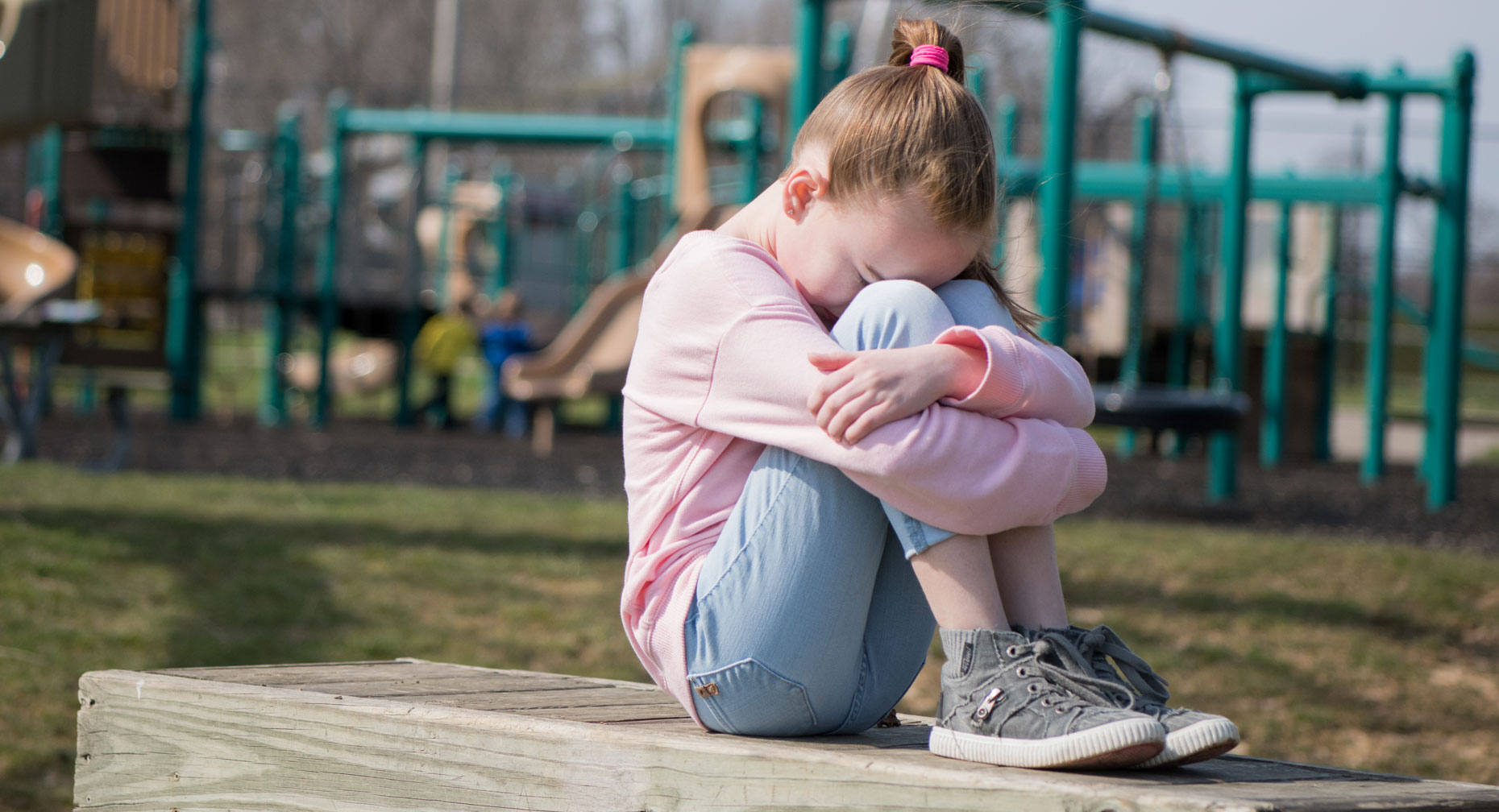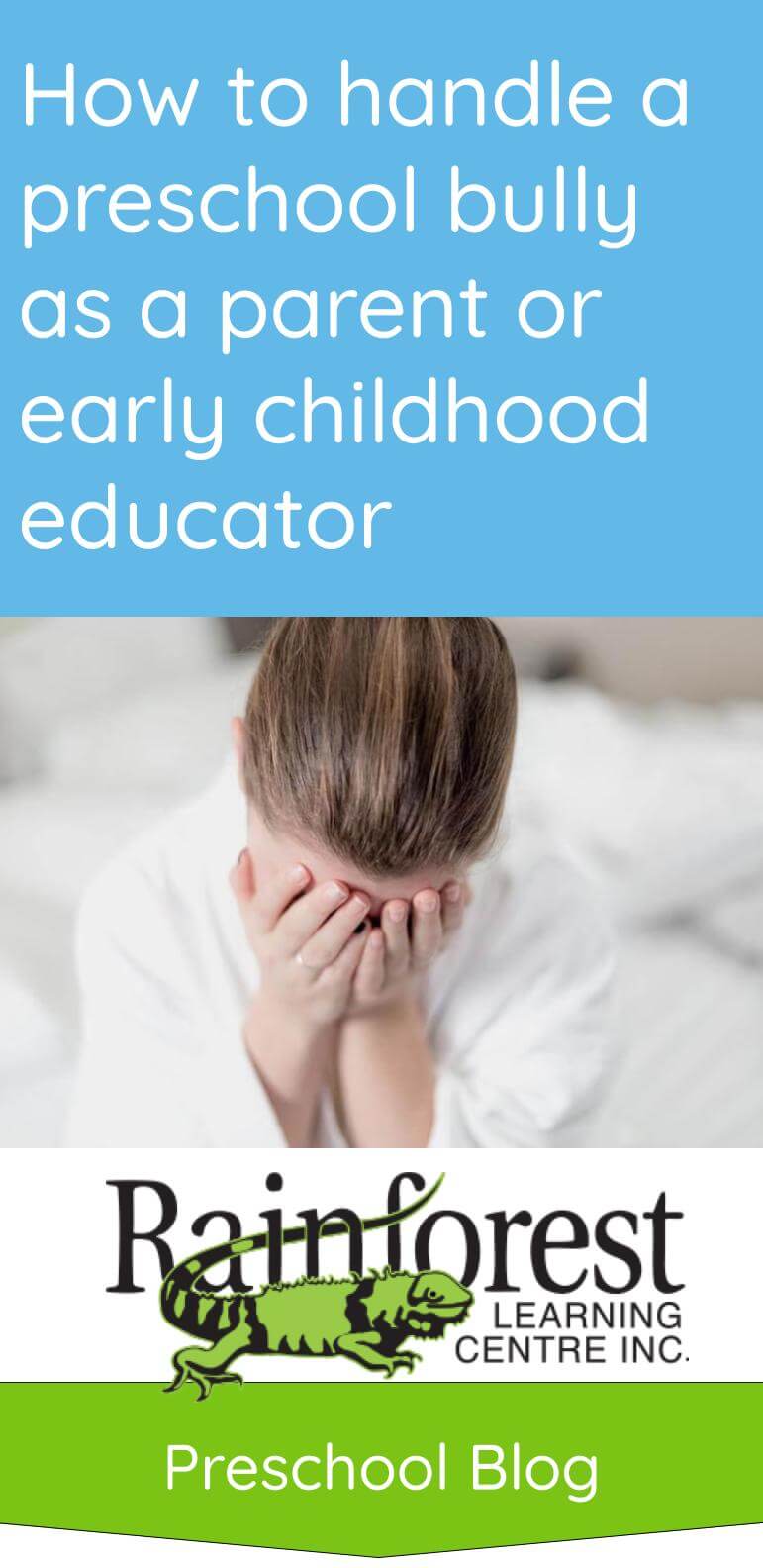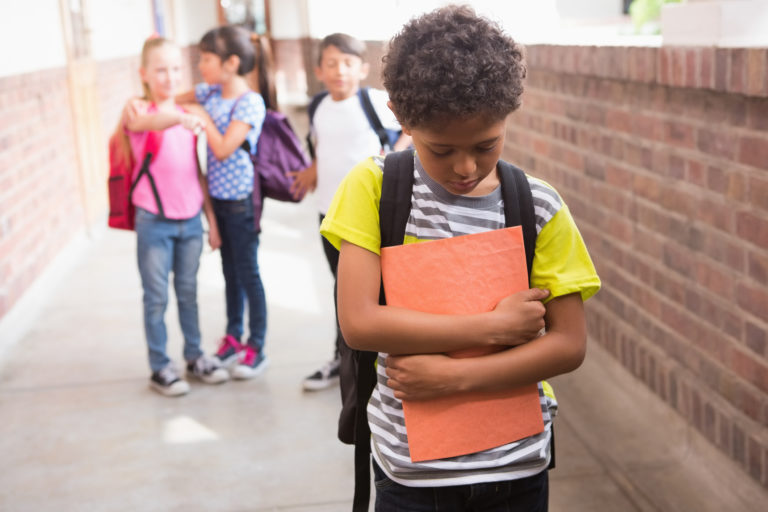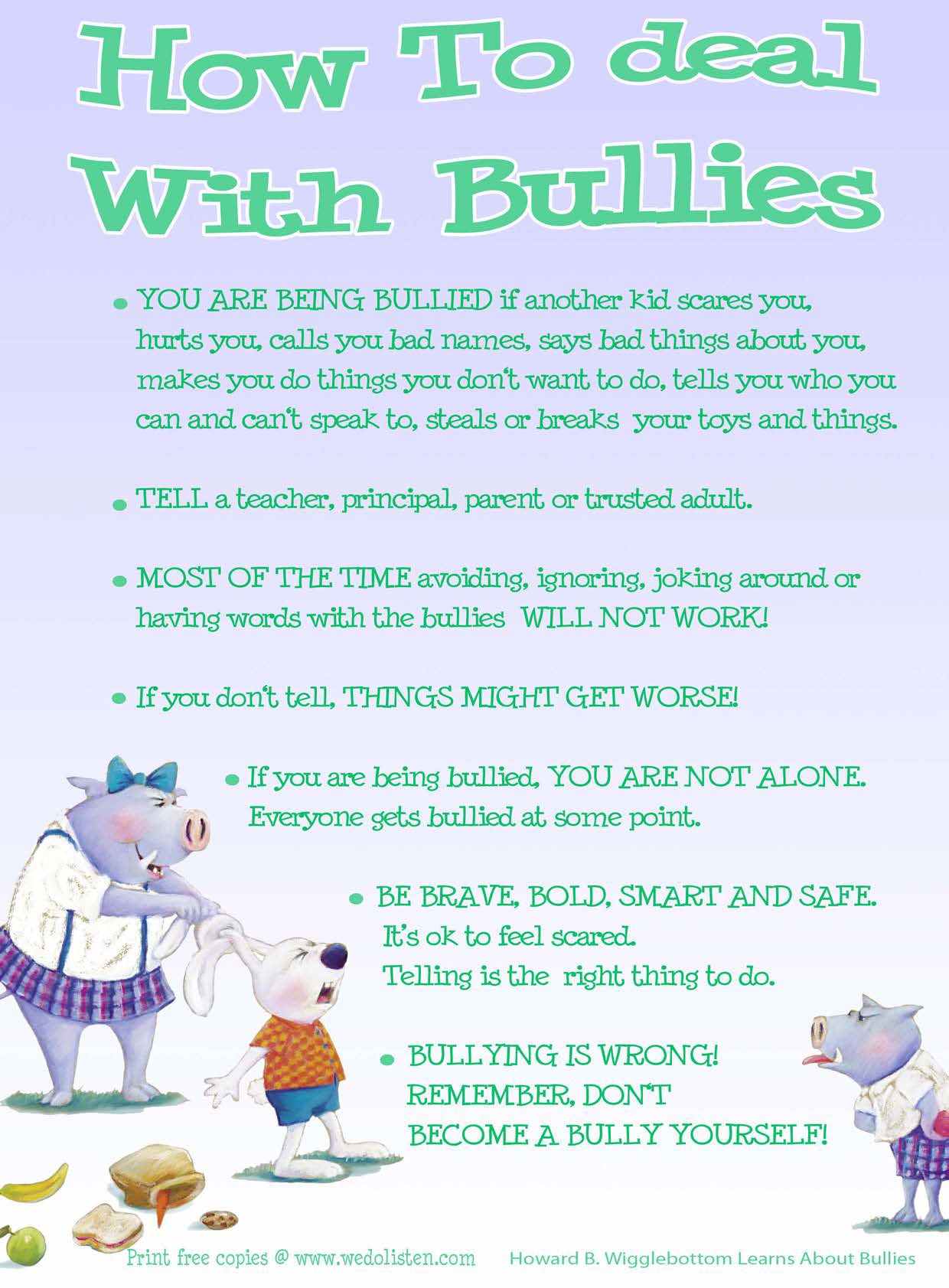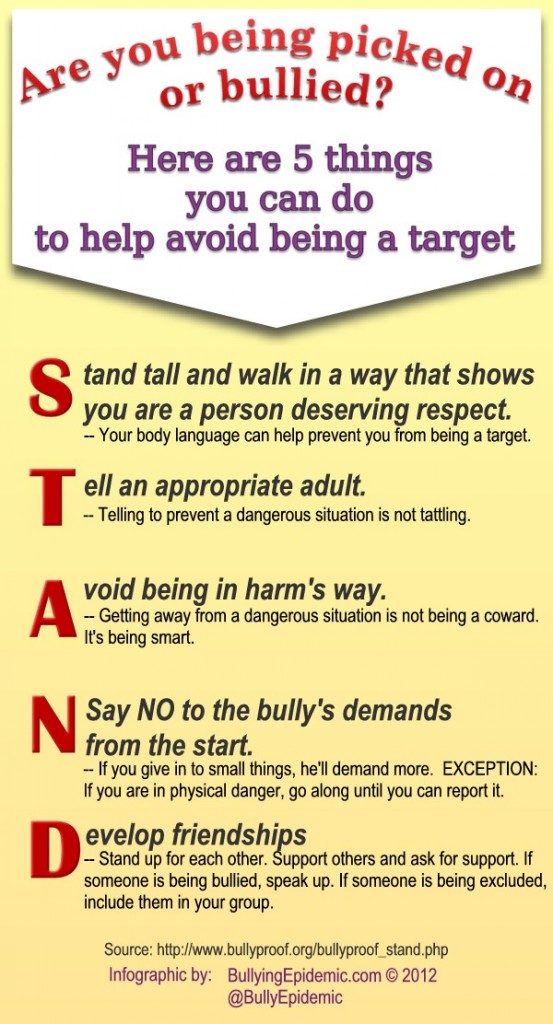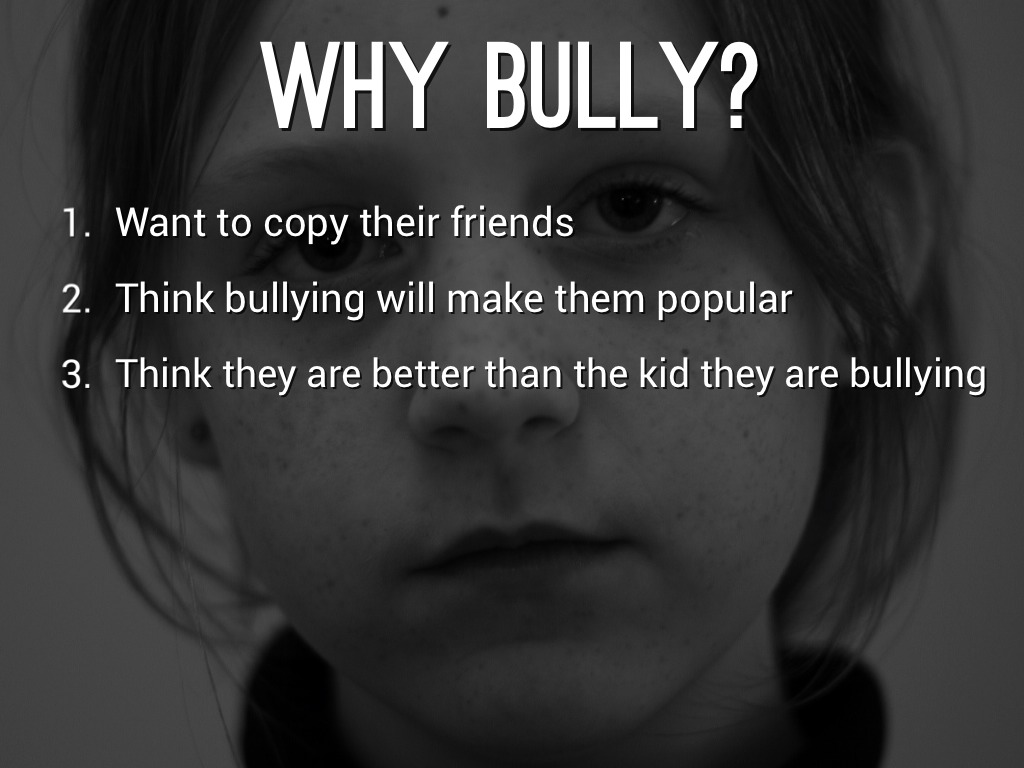Fun Tips About How To Handle A Bully For Kids

Talk openly and frequently to your children.
How to handle a bully for kids. Signs your kid is getting bullied the first step to dealing with bullies is knowing how to recognize when your child is being bullied. Find the best way to react tip 2: Reframe the problem of bullying tip 3:
Why am i being bullied? Encourage your child to invite a close friend to do things together and help them spend more time with the children important to them. It is a repeated behavior and can be physical, verbal, or relational.
Talk about what bullying is and how to stand up to it safely. Bullying has everyone worried, not just the people on its receiving end. Being present can go a long way in validating kids’ feelings after a bully hurts them.
Kids who learn and think differently are often the target of bullying. Being bullied can make kids feel really bad, and the stress of dealing with it can make them feel sick. Learn about dealing with bullies, including tips on how to stand up for yourself or a friend.
The more you talk to your children about bullying, the more comfortable they will be telling you if they see or. After all, you're angry that your child is suffering and maybe you were told to stand up for yourself when you were young. But your child can also learn ways to handle the bullying while it’s being addressed by the school.
Keep the lines of communication open. Find out more at stopbullying.gov. This gives your child skills to deal with future bullying or negative social behaviour.
Being bullied can make kids feel really bad, and the stress of dealing with it can make them feel sick. The nspcc helpline is available on 0808 800 5000 or via [email protected]. Bullying is a big deal.
Words matter do help kids understand the difference between unintentionally rude behavior (such as butting ahead in the lunch line), mean comments said in a moment of anger between friends. Know their friends, ask about school, and understand their concerns. Bullying has been part of school, and even workplaces, for years.
Protecting a child emotionally is just as important as protecting physically. This could be a parent, another family member, a friend’s parent, a teacher, coach, faith leader, or school counselor. Most kids say they have been bullied or teased.
Check in with kids often. Children reclaim their power when they make and maintain connections with faithful friends and. Bullying can make kids not want to play outside or go to school.


